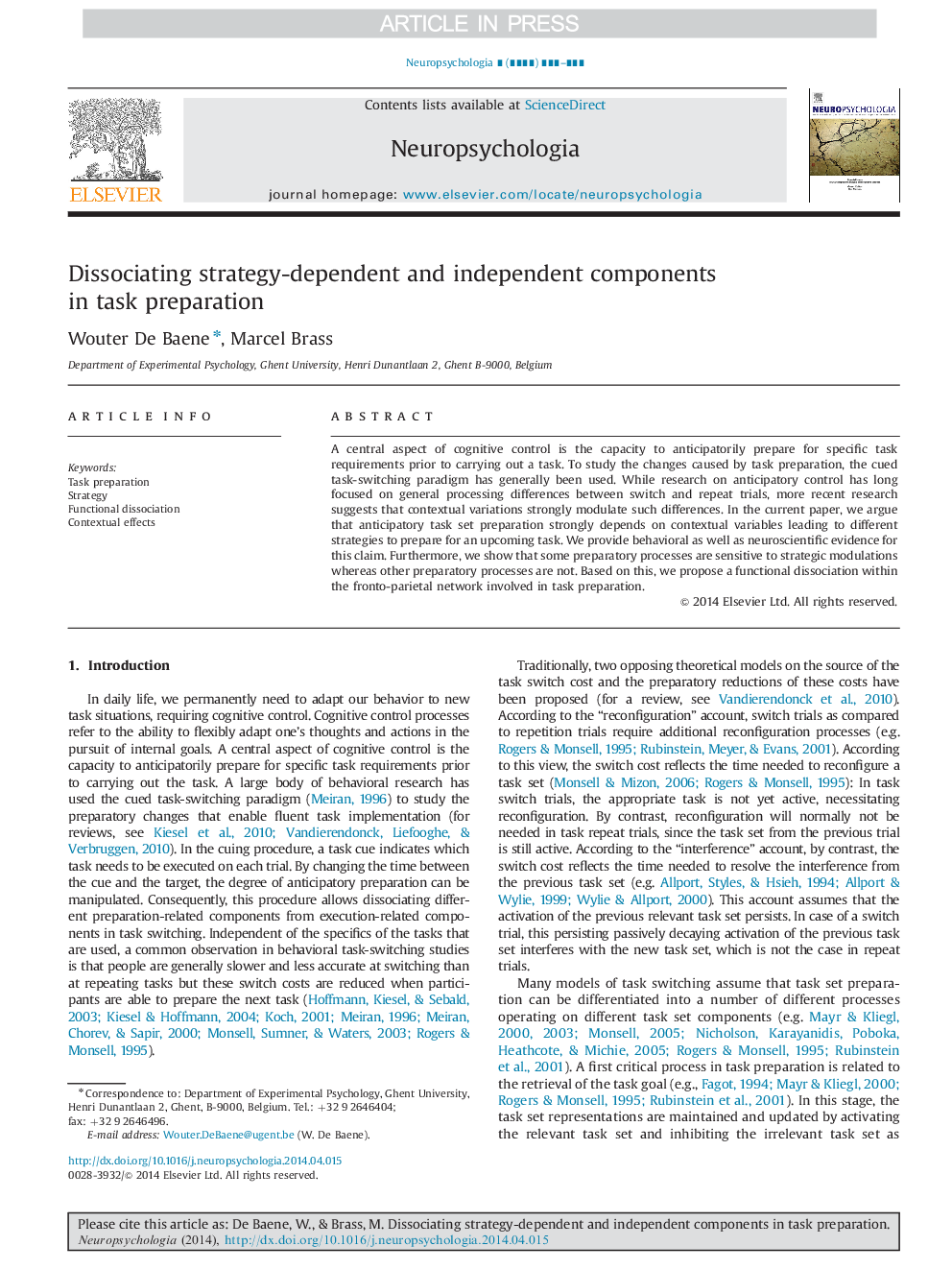| Article ID | Journal | Published Year | Pages | File Type |
|---|---|---|---|---|
| 7320936 | Neuropsychologia | 2014 | 10 Pages |
Abstract
A central aspect of cognitive control is the capacity to anticipatorily prepare for specific task requirements prior to carrying out a task. To study the changes caused by task preparation, the cued task-switching paradigm has generally been used. While research on anticipatory control has long focused on general processing differences between switch and repeat trials, more recent research suggests that contextual variations strongly modulate such differences. In the current paper, we argue that anticipatory task set preparation strongly depends on contextual variables leading to different strategies to prepare for an upcoming task. We provide behavioral as well as neuroscientific evidence for this claim. Furthermore, we show that some preparatory processes are sensitive to strategic modulations whereas other preparatory processes are not. Based on this, we propose a functional dissociation within the fronto-parietal network involved in task preparation.
Related Topics
Life Sciences
Neuroscience
Behavioral Neuroscience
Authors
Wouter De Baene, Marcel Brass,
